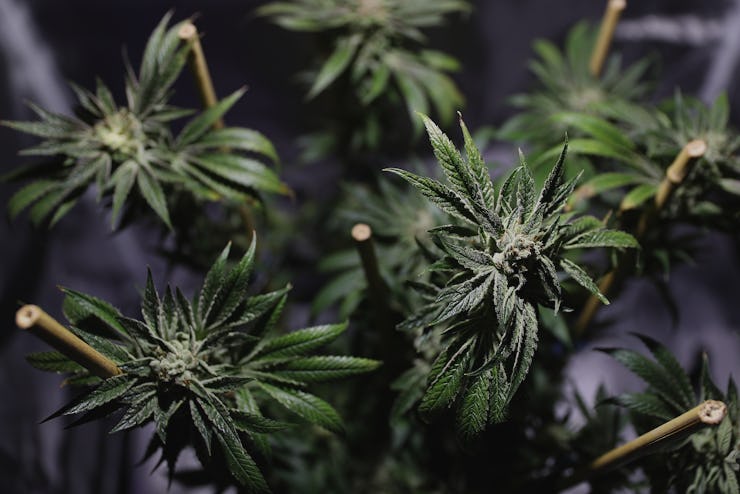The U.S. Will Loosen Marijuana Regulations for Science
The rule change allows for more scientific research.

The U.S. government’s approach to marijuana research is undergoing a radical change. On Thursday, the Drug Enforcement Administration announced that it will loosen rules around scientific study, allowing other institutions to grow and distribute the drug for research purposes. The only institute currently allowed to do so is the University of Mississippi.
The DEA did not, however, reschedule marijuana in its announcement. Marijuana is currently a Schedule I drug, meaning the DEA considers it a drug “with no currently accepted medical use and a high potential for abuse.” Schedule I drugs are considered the most dangerous, and the category also includes heroin and LSD.
In its response to two petitions pushing the DEA to reschedule the drug, the agency said that the drug does not meet guidelines that would allow it to be rescheduled. “Based on the legal standards in the [Controlled Substances Act], marijuana remains a schedule I controlled substance because it does not meet the criteria for currently accepted medical use in treatment in the United States, there is a lack of accepted safety for its use under medical supervision, and it has a high potential for abuse,” the agency said in a statement.
Medicinal marijuana has a number of supporters from across the political spectrum. In March 2015, one Republican and two Democratic senators introduced a bill that would stop the federal government from prosecuting medicinal marijuana users in states where it is legal.
U.S. Senator Kirsten Gillibrand, at podium, speaks about medical Marijuana and how it could possibly help four-year-old Morgan Hintz who suffers from a rare form of epilepsy.
25 states have legalized medicinal marijuana, but even among these states, work remains to be done in defining what is legal and supplying researchers with materials to make further progress. Loosening restrictions would help those states improve services for those who need the drug most.
Supporters of marijuana research praised the news. Smart Approaches to Marijuana, which is strongly against marijuana legalization, told Reuters that opening up medical research into the drug was “a good day for science.”
“This shows that the federal government is flexible on legitimate research but is nowhere near wanting to legalize marijuana,” said Kevin Sabet, president of Smart Approaches to Marijuana.
Institutions will still need to seek out federal approval before carrying out research, but ending the University of Mississippi’s monopoly deal is expected to help expand the amount of marijuana researchers could use.
“It will create a supply of research-grade marijuana that is diverse, but more importantly, it will be competitive and you will have growers motivated to meet the demand of researchers,” John Hudak, a senior fellow at the Brookings Institution, told the New York Times.